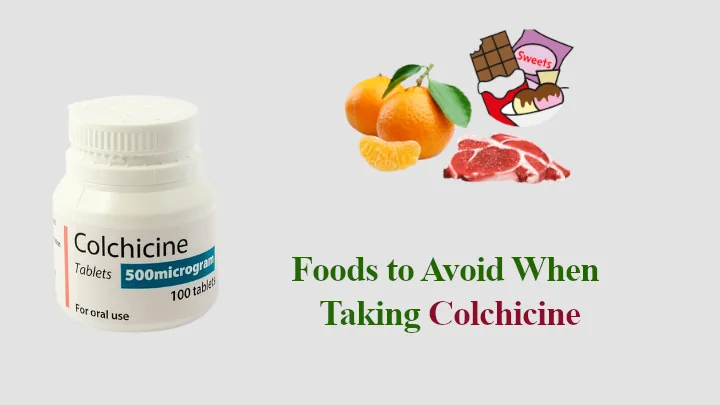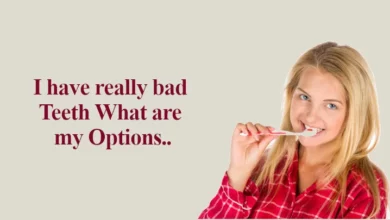Top 11 Foods to Avoid When Taking Colchicine

Are you looking for foods to avoid when taking colchicine? A common prescription drug called colchicine is used to treat and prevent gout, a painful condition caused by the buildup of uric acid crystals in the joints. It’s essential to understand the food that can inhibit or interfere with the therapeutic benefits of colchicine to ensure its optimal effectiveness and reduce unwanted interactions.
People can improve their medication management and promote general health by understanding which foods to consume or avoid.
This article will explore foods to avoid when taking colchicine. People can reduce potential side effects, keep healthy uric acid levels, and improve the effectiveness of their colchicine medication by keeping to these dietary recommendations.
In This Article
Foods to Avoid when taking colchicine
We have listed what to avoid while taking colchicine:
1. Grapefruit and Oranges
Colchicine food to avoid is Grapefruit and its juice. It’s true because it contains compounds that can interfere with the metabolism of certain medications, including colchicine! Grapefruit and seville oranges contains substances called furanocoumarins, which inhibit an enzyme known as CYP3A4 in the liver and intestines.
This enzyme is responsible for breaking down colchicine and other drugs. So if you’re taking medication like this, it might be best to avoid eating or drinking grapefruit and oranges just to be safe.
2. Pomegranate
Pomegranate is known to be a healthy fruit because of its high antioxidant content. However, some studies suggest pomegranate juice may interfere with the metabolism of colchicine medication. If you take this medication, avoiding consuming too much pomegranate juice is best.
3. Red Meat
If you take colchicine for gout, limiting or avoiding red meat is best. Red meat is a great source of protein, but unfortunately, it also contains purines which break down into uric acid when digested.
Uric acid crystals can accumulate in the joints and cause gout attacks, so reducing your intake of high-purine foods like red meat will help manage your condition more effectively.
4. High-fat foods
I know we all love high-fat foods, but it’s important to remember that they can affect the absorption of colchicine. Eating meals with a lot of fat can slow down gastric emptying and impair the absorption process in your small intestine.
This means that you may not be getting as much benefit from taking colchicine if you’re eating high-fat meals simultaneously. So let’s try to keep those fatty foods out when taking this medication!
5. Sugary foods and beverages
If you’re taking colchicine to treat and prevent gout, it’s important to avoid sugary foods and beverages. These can contribute to inflammation and increase your risk of gout attacks. So try reaching for healthier options like fruits or vegetables instead!
6. Organ meats
What not to take with colchicine is organ meats. As you may know, colchicine is often prescribed for gout, and it’s important to be mindful of what we eat when taking this medication. Organ meats like liver, kidney, and sweetbreads should generally be avoided or consumed in moderation as they contain high purine levels.
Purines are natural substances in certain foods that break down into uric acid, which can cause gout if present at elevated levels. So let’s keep these dietary tips in mind when taking colchicine!
7. Soft drinks
Did you know that drinking soft drinks with high fructose corn syrup can increase the risk of gout? Gout is a condition caused by elevated uric acid levels in the blood. This leads to painful and inflamed joints due to urate crystals forming.
The fructose in these drinks can raise uric acid levels too, which may cause or worsen gout attacks! It’s best to avoid them if you’re prone to this condition – colchicine is usually prescribed anyway!
8. Excessive salt consumption
Knowing the potential impact of excessive salt intake when taking colchicine is important. Colchicine is a common medication for gout, an arthritis condition caused by uric acid crystals in the joints.
Gout can cause sudden and severe pain and inflammation in your joints – so it’s best to take care of your diet while on this medication!
9. Alcohol
Combining alcohol with colchicine can increase colchicine levels in the body. The liver primarily metabolizes colchicine, and alcohol consumption can interfere with metabolism. This could intensify some of the side effects or toxicity of taking this medication.
10. Fried foods
We all love fried foods, but it’s important to remember that they are often cooked in unhealthy oils that can lead to inflammation. This inflammation is a key factor in conditions like gout, which can be painful and require medications like colchicine.
That’s why it’s so important for us to avoid fried foods as much as possible – by doing this, we reduce the risk of increasing our chances of getting gout attacks.
11. Shellfish
What not to eat with colchicine is shellfish. If you’re taking colchicine, it’s important to be mindful of your shellfish intake. Mussels, scallops and shrimp are all high in purines – natural compounds that can be broken down into uric acid by the body.
As colchicine is typically prescribed for gout, caused by elevated uric acid levels and the formation of crystals in joints, these shellfish should generally be avoided or consumed only occasionally when taking this medication.
Q. Does colchicine have to be taken with food?
Ans- Yes, colchicine has to be taken with food. Colchicine may cause gastrointestinal side effects, such as nausea, vomiting, and diarrhoea, which can be reduced by taking the medicine with meals. Some medical professionals might advise taking colchicine with a meal or a small snack to lessen these possible adverse effects.
Q. Can you drink alcohol while taking colchicine?
Ans- It is usually not recommended alcohol consumption when taking colchicine. Colchicine’s gastrointestinal adverse effects, such as nausea, vomiting, and diarrhoea, can be enhanced more likely by alcohol. Colchicine side effects may become more severe if alcohol is taken while taking the medication.
Conclusion
In conclusion, paying attention to your diet while taking colchicine is essential and staying away from things that can interfere with the medicine or increase its negative effects. You can maximize the effects of colchicine and better control conditions like gout by paying attention to the foods you eat.
- Effects of grapefruit and Seville orange juices on the pharmacokinetic properties of colchicine
- Purine-rich foods intake and recurrent gout attacks
- Colchicine: efficacy and safety issues.





